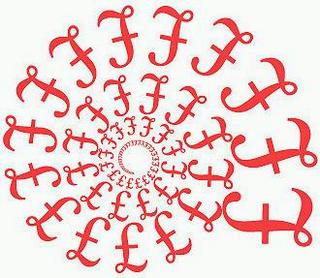It is the only source that can provide a chance for economic breakthrough
Published:
21 March 2005 y., Monday
Money from Russia’s Stabilisation Fund is expected to be invested abroad in dollar-nominated securities, with minimum investment risks and minimum profitability at 2-4%. These funds have until now been kept in Central Bank accounts. This means that a great deal of money will soon appear on the financial markets. On February 1, 2005, the Fund totaled 647.2 billion roubles ($23.1 billion), which mostly came from taxes on oil sales with prices exceeding $20 per barrel and export duties from oil companies.
The crucial question is how this money should be used. Money can only be taken out of the Fund when it has more than 500 billion roubles. Therefore, more than a fifth of its resources can already be used. This is a key issue for Russia’s economy, as the positive overseas market situation in recent years has been almost exclusively responsible for its growth.
However, experts are not tired of repeating that the potential of the resource-oriented Russian economy has been virtually exhausted. The mechanism whereby "we produce oil, sell it and enjoy the benefits" is becoming increasingly less effective. The country is now at a stage when it must introduce an industrial policy. However, any policy only makes sense when there is money to implement it.
Russia’s stock market and banking system do not provide the necessary financing for the real sector of the economy. Direct foreign investment in Russia remains at a very low level, while foreign investment in general is concentrated on either the import of equipment or foreign borrowings. The country obviously needs sources for further growth. The Stabilisation Fund is virtually the only potential source today and a genuine war is being waged for its funds.
Šaltinis:
financialexpress.com
Copying, publishing, announcing any information from the News.lt portal without written permission of News.lt editorial office is prohibited.
The most popular articles
 “Banking Market in the Baltics 2009-2011, CEE Banking Brief” report recently presented by Intelace Research states that, despite the current economic recession, Estonia, Latvia and Lithuania are still among the most advanced banking markets in Central and Eastern Europe (CEE).
more »
“Banking Market in the Baltics 2009-2011, CEE Banking Brief” report recently presented by Intelace Research states that, despite the current economic recession, Estonia, Latvia and Lithuania are still among the most advanced banking markets in Central and Eastern Europe (CEE).
more »
 According to the unaudited data for three quarters 2009, AB Bank SNORAS earned LTL 4.1 million profit. Although the inter-banking market of the country fixed the banks’ asset decrease (- 4.6 per cent) since the beginning of the year, the assets of Bank SNORAS grew by LTL 249.3 million and were by 4 per cent higher than at the beginning of 2009.
more »
According to the unaudited data for three quarters 2009, AB Bank SNORAS earned LTL 4.1 million profit. Although the inter-banking market of the country fixed the banks’ asset decrease (- 4.6 per cent) since the beginning of the year, the assets of Bank SNORAS grew by LTL 249.3 million and were by 4 per cent higher than at the beginning of 2009.
more »
 Taking into account changes on domestic money markets AB DnB NORD Bankas, a member of international financial group shall change individual and corporate time deposit rates from November 5.
more »
Taking into account changes on domestic money markets AB DnB NORD Bankas, a member of international financial group shall change individual and corporate time deposit rates from November 5.
more »
 FL Technics, the leading aircraft maintenance, repair and overhaul (MRO) provider in Eastern Europe, has signed contracts with Air Italy and Air Slovakia for Boeing 737-300 aircraft base maintenance in Lithuania.
more »
FL Technics, the leading aircraft maintenance, repair and overhaul (MRO) provider in Eastern Europe, has signed contracts with Air Italy and Air Slovakia for Boeing 737-300 aircraft base maintenance in Lithuania.
more »
 Thales UK’s headquarters site in Weybridge has recently held a Halloween charity coffee morning, raising more than £280 for Marie Curie Cancer Care.
more »
Thales UK’s headquarters site in Weybridge has recently held a Halloween charity coffee morning, raising more than £280 for Marie Curie Cancer Care.
more »
 New SaaS-Based Vulnerability-Scanning Solution Is Latest Addition to Company’s Application Security Program.
more »
New SaaS-Based Vulnerability-Scanning Solution Is Latest Addition to Company’s Application Security Program.
more »
 Since 31 October 2009, only LTL 0.99 fee for accepting payments will be applied to clients while making payments for various services (utility fees, communication services, etc.) in all subdivisions of Bank SNORAS.
more »
Since 31 October 2009, only LTL 0.99 fee for accepting payments will be applied to clients while making payments for various services (utility fees, communication services, etc.) in all subdivisions of Bank SNORAS.
more »
 AB DnB NORD Bankas, the country‘s leader in investment products market, offers a new possibility for the clients to make repurchase deals (repo deals) in the bank’s newly installed on-line trading platform.
more »
AB DnB NORD Bankas, the country‘s leader in investment products market, offers a new possibility for the clients to make repurchase deals (repo deals) in the bank’s newly installed on-line trading platform.
more »
 The benefits of the integration of eastern Europe’s financial systems into the world economy outweigh the costs that have been highlighted during the global economic crisis, the EBRD has concluded in a new report.
more »
The benefits of the integration of eastern Europe’s financial systems into the world economy outweigh the costs that have been highlighted during the global economic crisis, the EBRD has concluded in a new report.
more »
 On 22 October 2009, following the favourable opinion expressed in September by the Committee for Fisheries and Aquaculture, the Commission adopted a Regulation establishing the implementing rules for the 2008 Regulation to prevent, deter and eliminate illegal, unreported and unregulated (IUU) fishing.
more »
On 22 October 2009, following the favourable opinion expressed in September by the Committee for Fisheries and Aquaculture, the Commission adopted a Regulation establishing the implementing rules for the 2008 Regulation to prevent, deter and eliminate illegal, unreported and unregulated (IUU) fishing.
more »